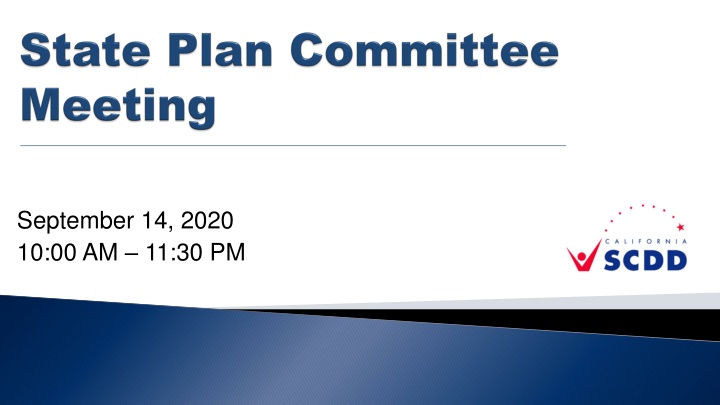
Council Collaborates with California for Improved Services
The Council, in collaboration with California's federal partners, is assessing the service systems affecting individuals with I/DD. The focus areas include education, employment, housing, health, and safety. Reports will address gaps in service delivery and offer recommendations for policy changes to align with the goals of the DD Act. The collaboration aims to bring about positive policy and practice changes.
Download Presentation

Please find below an Image/Link to download the presentation.
The content on the website is provided AS IS for your information and personal use only. It may not be sold, licensed, or shared on other websites without obtaining consent from the author. If you encounter any issues during the download, it is possible that the publisher has removed the file from their server.
You are allowed to download the files provided on this website for personal or commercial use, subject to the condition that they are used lawfully. All files are the property of their respective owners.
The content on the website is provided AS IS for your information and personal use only. It may not be sold, licensed, or shared on other websites without obtaining consent from the author.
E N D
Presentation Transcript
September 14, 2020 10:00 AM 11:30 PM
The Council, in collaboration with Californias four (4) federal partners (one Protection and Advocacy agency and three University Centers for Excellence in Developmental Disabilities), will assess the generic service system(s) that impact people with I/DD by choosing an area of emphasis in the State Plan, such as education, employment, housing, health or safety, and report on how the generic service system(s) is currently serving people with I/DD (including both those people served and not served by the Regional Center system), gaps in service delivery in the system(s), recommendations on how to improve the system(s) to meet the goals of the DD Act, and pursue policy and practice changes. The collaboration will result in 2 reports, 6 recommendations for policy or practice changes, and 2 changes to policy or practice.
